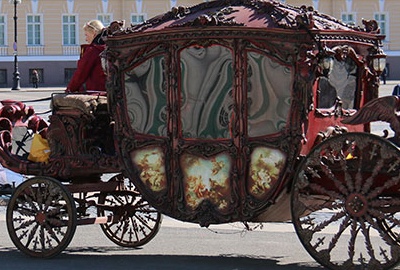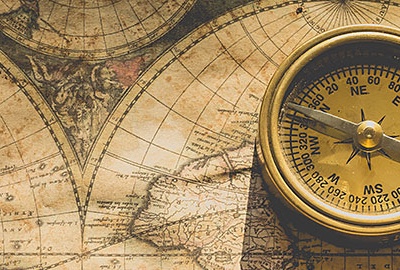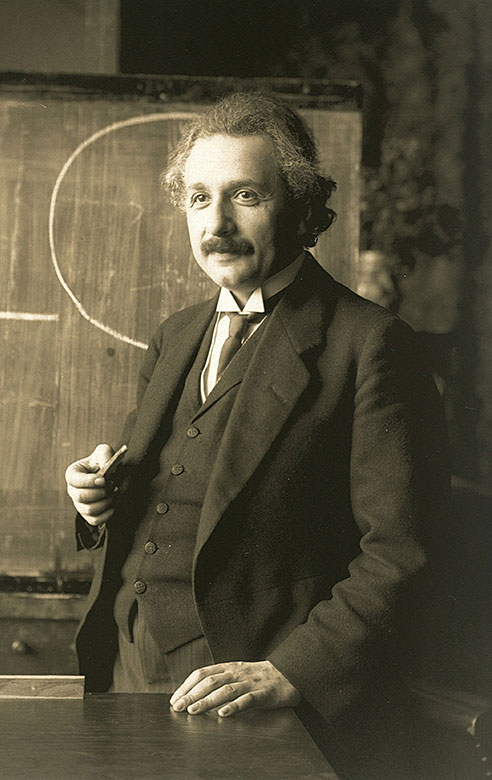
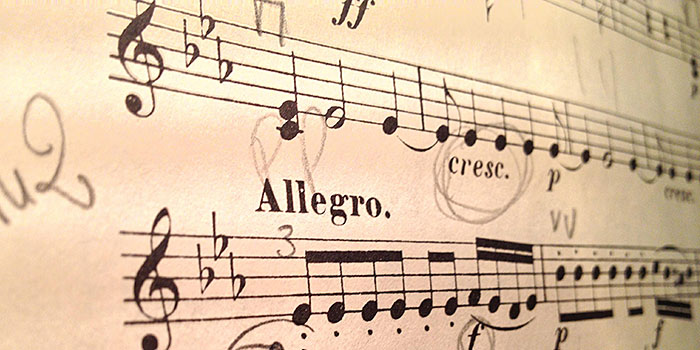
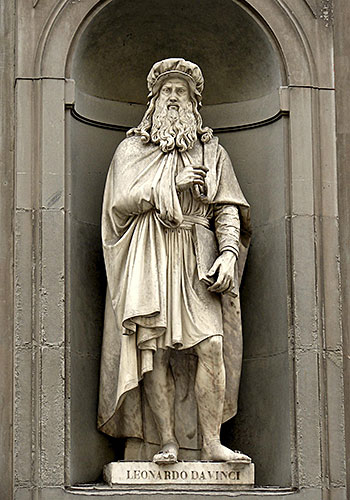
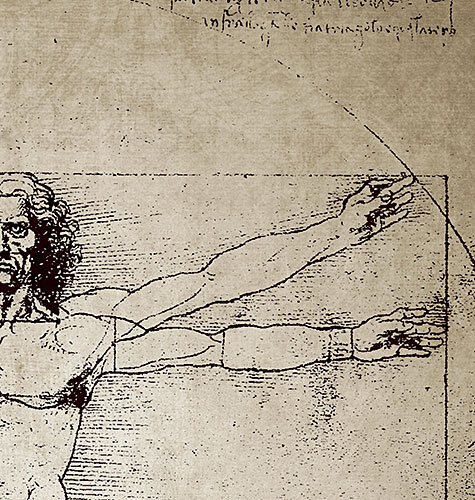
5 of the Most Famous Geniuses
- ArticlesandContent.com (CIRCA 2005)
- /
- Oct 8, 2021 (written 2005)
5 of the most famous geniuses in history.
Leonardo Da Vinci
Leonardo Da Vinci, who was born in Italy in 1452, was possibly one of the greatest geniuses that ever lived. He is perhaps best known as the painter of the Mona Lisa, but his real genius went far beyond merely creating the most famous work of art in the world. Da Vinci was a true “polymath” – one who mastered many different fields, not only art and sculpture but also anatomy, mathematics and science.
Perhaps Da Vinci’s most astonishing achievements were his inventions, many of which were never built during his lifetime because the technology simply did not exist to realize his visions, but remained tantalizing sketches on paper. These include a design for a helicopter, parachutes, the first armored tank, a hang glider, even a type of continuously variable transmission variations of which are used in modern cars ( HYPERLINK "http://www.sae.org/automag/techbriefs_01-00/03.htm" http://www.sae.org/automag/techbriefs_01-00/03.htm).
Despite living during a time of war and upheaval, and a sometimes controversial private life ( HYPERLINK "http://en.wikipedia.org/wiki/Leonardo_da_Vinci#Personal_life" http://en.wikipedia.org/wiki/Leonardo_da_Vinci#Personal_life), Leonardo Da Vinci stands as arguably the greatest genius in history.
Wolfgang Amadeus Mozart
Mozart is widely regarded as the greatest composer in history, and is seen by many as the classic example of a boy genius. Born in Salzburg, Austria in 1756, by the age of five he was composing his own works of music and the following year, still only six, he embarked on a three and a half year concert tour around the capitals of Europe, playing for kings and emperors.
Such was his genius for music that at the age of thirteen, invited to the Sistine Chapel by the Pope to hear the famous “Miserere” by Gregorio Allegri (a piece so valued by the Vatican that it was forbidden to be played outside its walls or copied in any way), it is said that he went back to his lodgings with his parents after Mass and copied the whole thing down from memory. ( HYPERLINK "http://www.classical.net/music/comp.lst/works/allegri/miserere.html" http://www.classical.net/music/comp.lst/works/allegri/miserere.html)
Mozart’s influence on later composers, not least Beethoven, is immense; most of the great composers that came after him acknowledge their debt to him in one way or another. Few, though, can match his genius.
Isaac Newton
Isaac Newton is arguably the most important figure in the history of science and, like Leonardo Da Vinci, one of the few men or women to be an real genius in several fields. His most famous contribution was to the science of physics, coining Newton’s three laws of motion, and it is said that he was moved to formulate his theory of gravity when an apple fell on his head – though whether this is literally true is not known. HYPERLINK "http://csep10.phys.utk.edu/astr161/lect/history/newtongrav.html" http://csep10.phys.utk.edu/astr161/lect/history/newtongrav.html
“Genius is patience.”
By comparison with some of the other geniuses in this article, Newton did not have to struggle in life; he was born into a fairly wealthy family, and studied at Cambridge University. However, for all that, Newton changed the world as thoroughly as any other man of his time – virtually inventing the theory of calculus and laying the groundwork for modern mechanics and physics. Without the genius of Newton, the modern world would be very different.
Albert Einstein
If you are asked to think of a scientific genius, Einstein is probably the first person you would think of – the wild hair and genius IQ seem to go together so naturally. Yet not everyone saw it that way - although he was undoubtedly a very smart child, he dropped out of school and failed his entrance exams for university in Zurich at the first attempt!
Einstein’s genius manifested itself in 1905 with his Special Theory of Relativity, which along with three other scientific papers that year would eventually win him a Nobel Prize and gave us that most famous of equations, E=mc2. Working as a guest professor at Princeton University when the Nazis came to power in his native Germany, the Jewish-born Einstein renounced his German citizenship and became an American citizen in 1940.
Such was his stature and acknowledged genius that he was asked to become Israel’s President upon the death of its first, Chaim Weizmann. (He declined.) ( HYPERLINK "http://www.time.com/time/magazine/article/0,9171,817454,00.html" http://www.time.com/time/magazine/article/0,9171,817454,00.html) He has been voted the greatest physicist of all time (just ahead of Isaac Newton) ( HYPERLINK "http://csep10.phys.utk.edu/astr161/lect/history/newtongrav.html" http://csep10.phys.utk.edu/astr161/lect/history/newtongrav.html) and was Time Magazine’s “Person of the 20th Century”. ( HYPERLINK "http://www.time.com/time/time100/poc/magazine/albert_einstein5a.html" http://www.time.com/time/time100/poc/magazine/albert_einstein5a.html)
Stephen Hawking
In many ways Stephen Hawking is the closest we have in today’s world to an undisputed, real genius of any kind, and one who has overcome many hurdles to achieve what he has. Born in 1942, Hawking was a postgraduate student at Cambridge University when he was diagnosed with motor neuron disease, the illness that would confine him to a wheelchair. (Hawking has survived much longer than any other known patient with this variant of MND.)
Hawking is widely regarded as the foremost genius of contemporary physics, and much of that brilliance lies in his ability to explain incredibly complex scientific ideas in ways accessible to the ordinary layman – such as with his 1988 bestseller, “A Brief History Of Time”. ( HYPERLINK "http://www.amazon.com/Brief-History-Time-Stephen-Hawking/dp/0553380168" http://www.amazon.com/Brief-History-Time-Stephen-Hawking/dp/0553380168). Such is his fame and recognition among ordinary people that he has even appeared on the Simpsons, Star Trek and a Pink Floyd album.
